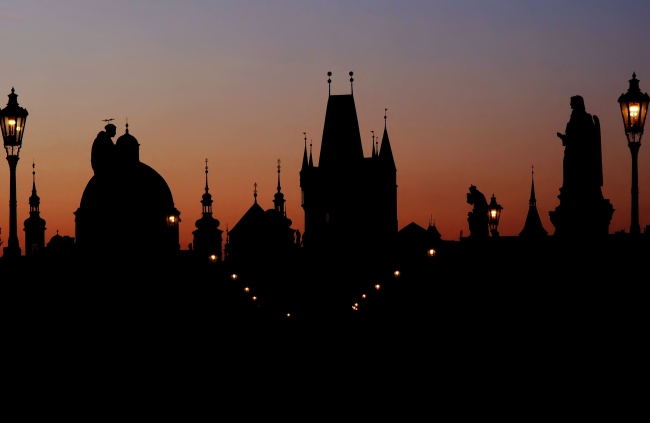Vítězslav Novák, In the Tatras
by Michael Beckerma
Born December 5, 1870, in Kamenice nad Lipou, Southern Bohemia
Died July 18, 1949, in Skuteč, Czech Republic
Composed in 1902
Premiered on November 25, 1902 in Prague by the Czech Philharmonic conducted by Oskar Nedbal
Performance Time: Approximately 25 minutes
Vítězslav Novák was a gifted and prolific composer who was at the core of Czech musical life in the first decades of the 20th century. Composing in virtually every genre, he has been claimed by both modernists and neo-romantics as a founding figure. He was also at the very center of an ongoing series of artistic feuds about the direction of Czech music, which were a feature of musical life at the time.
In a forthcoming article about the composer, Lenka Krupková refers to his “South Moravian” Suite as a kind of “ethnotourism,” noting that unlike Janáček, Novák had little primary experience with folk culture. Thus according to her, his lovely work is a classic example of a composition by an outsider. Not so with In the Tatras! Novák was deeply familiar with the mountains and had scaled them as a kind of expert climber (he carped that Strauss’ Alpine Symphony was composed from an armchair, and, in fact, three years after composing In the Tatras he was almost killed in a dangerous fall while climbing them).
Mountain music, whether by Strauss or Ralph Vaughan Williams in his Sinfonia Antartica, combines several prototypes or “topics.” First, the music conjures up images of the sublime: a vast, jagged, and open space which dwarfs a human scale and produces wonder and terror. This is readily apparent in Novák’s opening theme with its unison ascent followed by a leap. Second, it involves music of struggle, since such works not only seek to suggest the appearance and nature of mountains, but also engage the relationship of human beings to them. Finally, climbing mountains is not only a matter of engaging the physical challenges of the peak itself, but the kind of weather often encountered by mountaineers reaching toward high summits. So we also have a range of sounds throughout conjuring the music of cold, a kind of vocabulary developed over the centuries, from Purcell through Vivaldi and from Janáček’s “Voice of the Steppe” in House of the Dead to a broad range of cinematic effects associated with icy weather, such as high harmonics, tremolos, and the use of flutes and piccolos.
Michael Beckerman is the Carroll and Milton Petrie Professor of Music at New York University.

